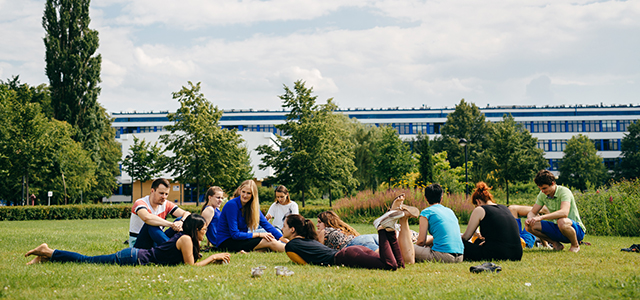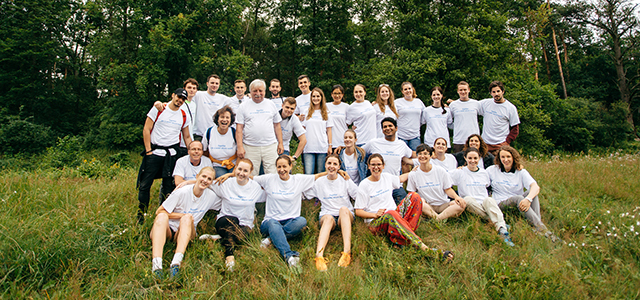Twenty-three MSc and PhD students from Ukraine, Lithuania, Poland, Romania, Bulgaria, Montenegro, Albania, Slovakia, Hungary, Slovenia, Austria, Germany, and Mongolia participated in the Summer School. Their specialities ranged from natural sciences, geography, engineering, to landscape ecology and law.
Structured on the IWRM ToolBox Teaching Manual developed for university lecturers in 2017, the Summer School had the following main sections: 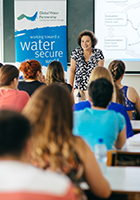
- IWRM - Water governance (law, policy), Water and environmental economics, IWRM and sectoral planning,
- Innovations (technical and non-technical solutions in urban and rural settings)
- Climate change (policy responses, floods and droughts adaptation)
- Social aspects: communication, public participation and stakeholder involvement.
The combination of academic professors, practitioners and representatives of world organisations proved to be an excellent combination to give the participants both theoretical and practical knowledge and enhance the skills of the new generation of water managers. The Summer School provided an open platform for the participants from different universities to share experiences and exchange cooperation ideas related to their water studies. The IWRM concept, innovative water solutions and climate resilience were among the most discussed topics. In many interactive sessions, the participants had the chance to step in the shoes of different stakeholders, to discuss river basin management plans, and create innovative solutions.
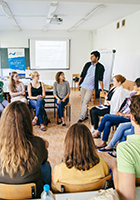 A special section of the Summer School was focused on youth and their participation in the water sector. Young water managers passionately debated youth participation and inclusion in decision-making processes. Mentors from the Youth for Water and Climate initiative and Young Water Solutions facilitated this section and gave the participants practical knowledge on youth-led projects and youth networks. As a result, the participants decided to create their own youth water community where they can share ideas about how to address the water challenges facing their countries.
A special section of the Summer School was focused on youth and their participation in the water sector. Young water managers passionately debated youth participation and inclusion in decision-making processes. Mentors from the Youth for Water and Climate initiative and Young Water Solutions facilitated this section and gave the participants practical knowledge on youth-led projects and youth networks. As a result, the participants decided to create their own youth water community where they can share ideas about how to address the water challenges facing their countries.
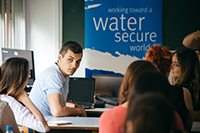
Exploring water issues from global, regional and local perspectives brought additional value to the experience and enhanced the skills of the future decision-makers.
We asked the participants: What was the added value of the summer school for you?
“During the Summer School, I got valuable knowledge, practical experience and new acquaintances. All that I can use in my country's life (at the local level). But this is not the main thing. The atmosphere of the Summer School made it possible to realize the need for my personal development and self-improvement. Thanks to the Summer School, for teachers and participants, I know the priorities for my future life.”
Olha Kopylova, Ukraine
“The added value of this summer school for me was (1) the different approach used by the organisers and lecturers to face and analyse different water related problems, but not only, I consider this a very important approach that should be implemented also in university classes because it will help the students to better understand the issues, and (2) it also increased my ability of collaboration with the others in order to analyse the topics and to propose different possible solutions.”
Elvis Kamberi, Albania
“The added value to me was definitely receiving a comprehensive knowledge about integrated water management, including documents that shape policy in European countries, in a nutshell. Another amazing thing was the diversity of lectures and lecturers: scientists, former politicians, people from different backgrounds and different countries - we could receive objective attitude towards presented issues.”
Magdalena Wojnowska-Heciak, Poland
"The added value for me as an environmental researcher was the new connections that I made with people in the same study area. Knowing so many passionate people interested in water issues made me really enjoy my work and encouraged me to fight for a better world with high quality water for everybody."
Catalin Cimpianu, Romania
